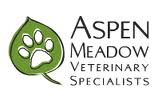

By Dr. Alexandra Pauls
Surgical Intern
As a culture, we’ve begun to pay a lot of attention to the food we eat. We know that diet can have a significant impact on our health, and it’s only natural that we would want to extend this same consideration to our whole family—including our pets. For a growing number of pet owners, this has come to mean the incorporation of uncooked food in their pets’ diets. Raw food diets come in a variety of forms, both commercially produced and home-prepared, but despite growing popularity, owners may be surprised to learn that there is very little peer-reviewed research supporting or refuting the diet’s purported benefits.
The nutritional needs of our furry family members are just as complex as our own, requiring specific nutrients based on species, age, lifestyle, and state of health. As such, it can be very challenging to meet all of our pets’ nutritional demands. This presents one of the major potential hazards of raw diets—many homemade and commercially available options are not nutritional complete or have significantly inappropriate ratios of key components, and these inadequacies can result in clinically significant deficiencies. One study reviewing homemade raw-food diets for dogs reported that 10% of diets had less than 25% of recommended calcium, half did not meet the requirement for iodine, a quarter only had 70% of the recommended Vitamin A, and 60% had imbalance ratios of Calcium to Phosphorus or excessive iodine (Dillitzer, 2011). Too much, too little, or the wrong proportion of any nutritionally-important element can result in disease and growth abnormalities. There are options to make certain that your pet is getting a correctly balanced diet. For those interested in homemade diets, the University of Tennessee can formulate a nutritionally complete and balanced diet to meet your needs for general purpose, disease-specific, or allergy requirements. http://www.vet.utk.edu/clinical/sacs/nutrition.php.
The myriad of pathogens in uncooked meat also present a potential danger to pets and owners alike. One study on commercially prepared and homemade raw diets detected Salmonella, Campylobacter, Shiga toxic E. coli., Clostridium, as well as a number of parasites and viruses (LeJeune, 2001). An additional study of commercially available raw diets found Salmonella contamination in 21% of samples, most commonly in products containing raw chicken, but also in diets with lamb, turkey, buffalo, and other meat sources. Several of the Salmonella types sampled were also noted to have antibiotic resistance (Finley, 2007). In another study of two hundred dogs over a one-year period, researchers found that while 8% of dogs fed kibble or cooked diets shed Salmonella the bacteria was shed by 61% of dogs fed raw meat (Lefebvre, 2007). Salmonella is communicable to humans, but may not produce any clinical signs in pets. In some cases it can cause mild diarrhea or gastrointestinal upset, but severe cases, when the bacteria migrates into the bloodstream, can be fatal. Prevention and early treatment are critical in achieving a good outcome.
Some studies have shown positive health benefits, but with a caveat. In the study of Salmonella shedding in pets, researchers found that dogs fed a raw meat diet had fewer incidences of some infections, including those of the urinary tract and skin, but there was no difference in the likelihood of being diagnosed with other major diseases (Lefebvre, 2007).
Currently there is not enough evidence to support or refute the health benefits of feeding a raw-food diet, but any pet owner interested in the trend should be aware of the danger of nutritional inadequacy and the potential for zoonotic disease. Here are recommendations for minimizing risks when feeding raw food as a complete or supplemental diet:
- Ensure that the diet is nutritionally complete and balanced.
- Maintain proper food handling by wearing gloves, washing hands, and keeping food at the recommended temperature.
- Dispose of feces daily to minimize environmental contamination.
- Do not feed raw diet to pets that will come into contact with individuals more susceptible to sickness, including the young, old, pregnant, and immune-compromised.
- Monitor your pets for any signs of gastrointestinal disease and seek veterinary advice.
As always, involve your veterinarian—feel free to discuss nutrition and disease risk with your family practitioner.
Dr. Alexandra Pauls is a Surgical Intern at Aspen Meadow Veterinary Specialists. AMVS is a 24-hour veterinary facility providing specialty internal medicine, orthopedic surgery, oncology, neurology, emergency, critical care, and pain management. They are located in Longmont at 104 S. Main St. For more information, go to www.AspenMeadowVet.com.
 Print This Post
Print This Post







